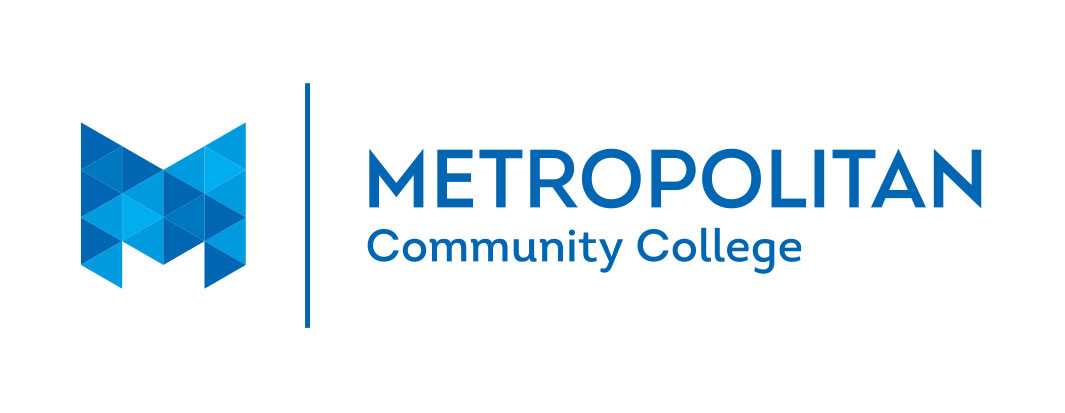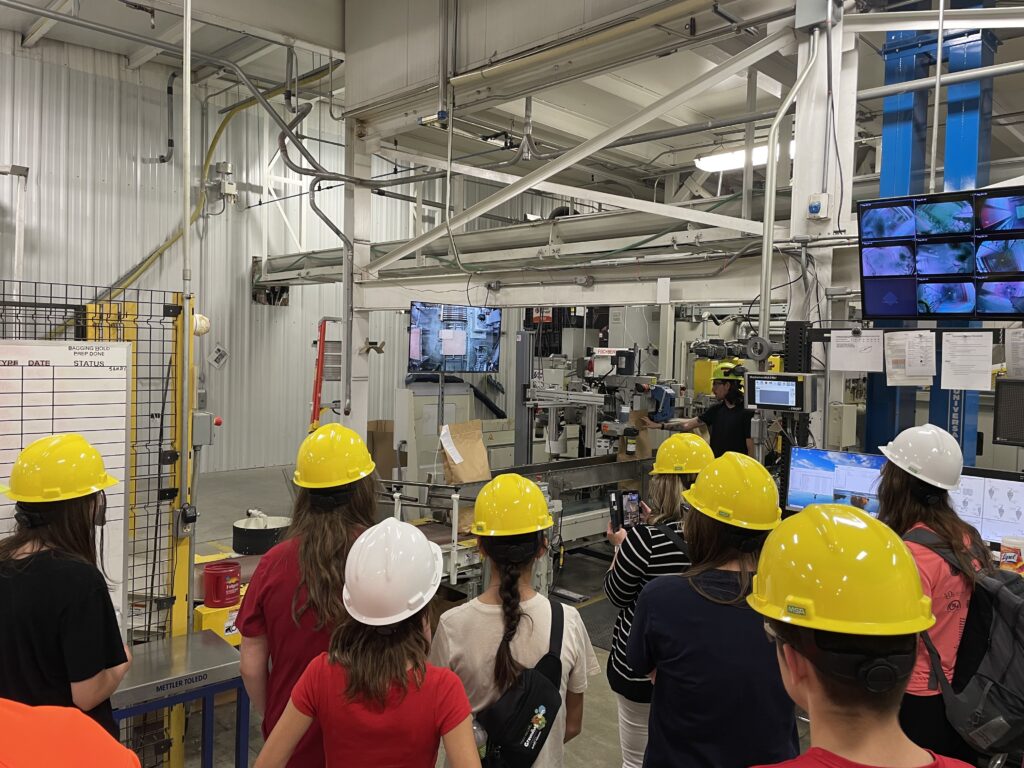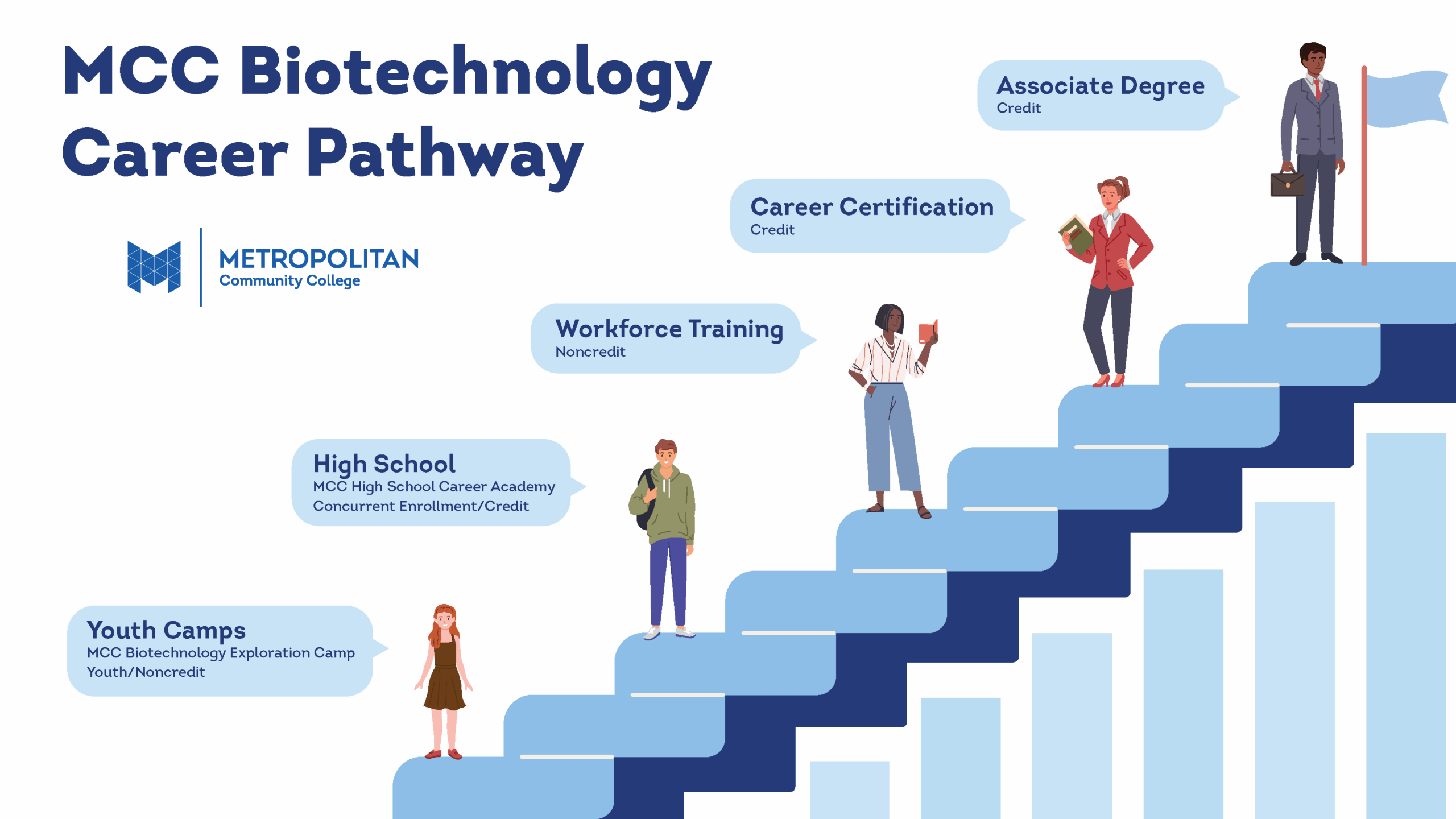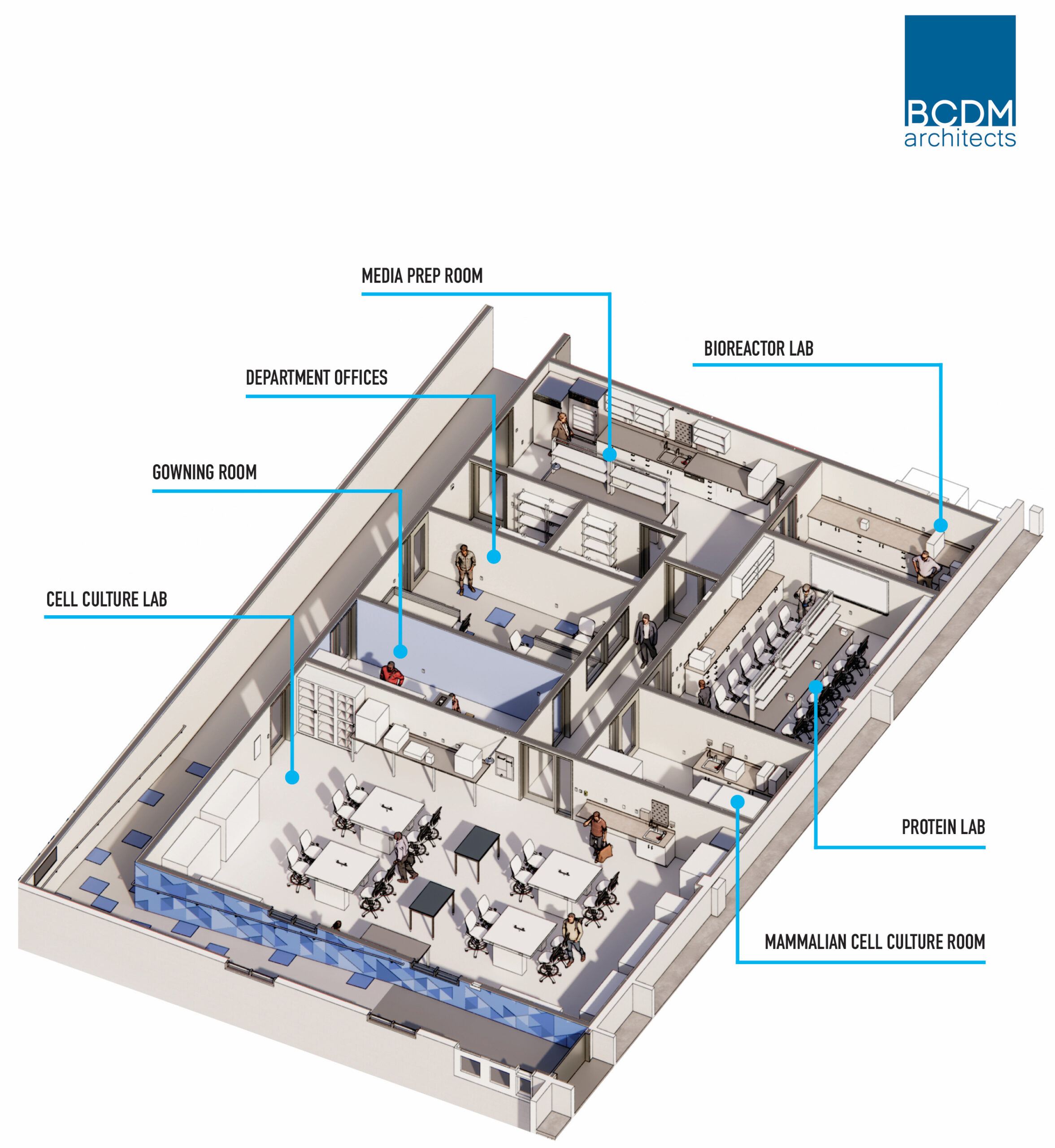
For our June Member Spotlight, we spoke with Metropolitan Community College (MCC), the second-largest postsecondary institution in Nebraska, about their new biotechnology program, set to launch in fall 2026.
Editor’s note: This article details Metropolitan Community College’s biotechnology technician training program, which is planned to launch in fall 2026. The program is pending Higher Learning Commission approval. The MCC biotechnology program has been approved by the MCC Board of Governors and Nebraska’s Coordinating Commission for Postsecondary Education. Approval by the Higher Learning Commission, the College’s regional accrediting body, is the final step in the accreditation process.
Metropolitan Community College (MCC) will launch a comprehensive biotechnology technician training program beginning in the 2026 fall quarter.* The goal of the program is to foster a workforce capable of meeting current and future workforce needs in Nebraska by equipping students with the skills and knowledge to gain access to emerging and sustainable careers in the growing sector.
Hosted at the Elkhorn Valley Campus, the program is designed to meet the needs of the full spectrum of Nebraska students and support current and future biotechnology workforce needs in the state. A guided pathway model features multiple credit and noncredit education and workforce training options that serve K-12 and college students, as well as nontraditional students seeking accelerated career development opportunities.*

Curriculum, facilities and firsthand learning experiences are being developed with input provided by an advisory committee comprised by representatives from MCC biotechnology industry partners.
A key feature of the program is its stackable model with on- and off-ramps along the way to an associate degree. Students who complete an associate also have options to transfer to four-year institutions.
Completion of the biotechnology pathway at MCC provides foundational skills for entry-level careers with MCC biotechnology industry partners within the College’s four-county service area (Douglas, Sarpy, Dodge and Washington counties) and beyond.
A dynamic program model

From noncredit youth biotechnology camps currently being offered to the development of curriculum for a range of noncredit and credit offerings, all levels of education are represented in the multi-level MCC biotechnology program*:
Kids and teens programming (noncredit): MCC currently offers engaging biotechnology exploration boot camps that introduce students to foundational topics and gain awareness about the field. Camps feature hands-on STEM learning through lab activities like DNA extraction, gel electrophoresis, fermentation investigations, microorganisms and more. Field trips and tours of biotechnology-related organizations, as well as visits by industry professionals, are also integrated.
High school career academies (credit): Students begin earning college credit during high school and gain career education in biotechnology, demystifying the subject and jump-starting their academic journey.*
Workforce education (noncredit): Accelerated, focused workforce training programs provide individuals and organizations with opportunities to develop immediate biotechnology job-readiness skills.*
College education (credit): In-depth, transferable credit programs with completion options attainable between nine months (career certificate), one year (certificate of achievement) and two years (associate degree). These options give students the opportunity to gain internship, sponsorship and employment opportunities as they progress. Students earning an associate degree have an option to transfer to a number of four-year institutions.*
Industry-relevant facility design

MCC is a leader in training the Nebraska workforce with a strong history of working together with industry partners to deliver relevant education. The program seeks to decrease the time and cost currently required for employers to successfully train a less skilled biotechnology workforce.
A business and industry leadership model puts employers in a co-leadership role with MCC. External partners, including industry experts, architects and engineers are contributing to the design of a state-of-the-art biotechnology lab set to open at the Elkhorn Valley Campus in fall 2026.* The 5,100-square-foot training space will help students develop core science knowledge and industry-relevant laboratory skills, completing the program with technical qualifications for sustainable employment opportunities.
The lab will feature the following industry-standard spaces:
- Mammalian cell culture lab
- Cell culture lab
- Protein lab
- Bioreactor lab
- Media prep room
- Gowning room
Another important focus of the program is to raise awareness of career opportunities and employers through tours of their plants and development of internship opportunities.
MCC is also collaborating with educational partners, including University of Nebraska at Omaha, Bellevue University, Southeast Community College and more.
Core biotech skills learned*
When students complete an associate degree in biotechnology at MCC, they gain the knowledge and technical skills, including the following:
- Aseptic technique
- Biorefinery operations
- Common laboratory and biotechnology equipment operation
- Good documentation practices (GDP)
- Good manufacturing practices (GMP)
- Materials processing
- Measurements, math, graphing and data analysis
- Regulatory compliance
- Safety procedures
- Troubleshooting and problem-solving
- Upstream and downstream manufacturing operations
For more information about the program, contact Jackie Clifford, MCC Biotechnology faculty program director, at [email protected] or 531-MCC-4617.
*Pending Higher Learning Commission approval.
